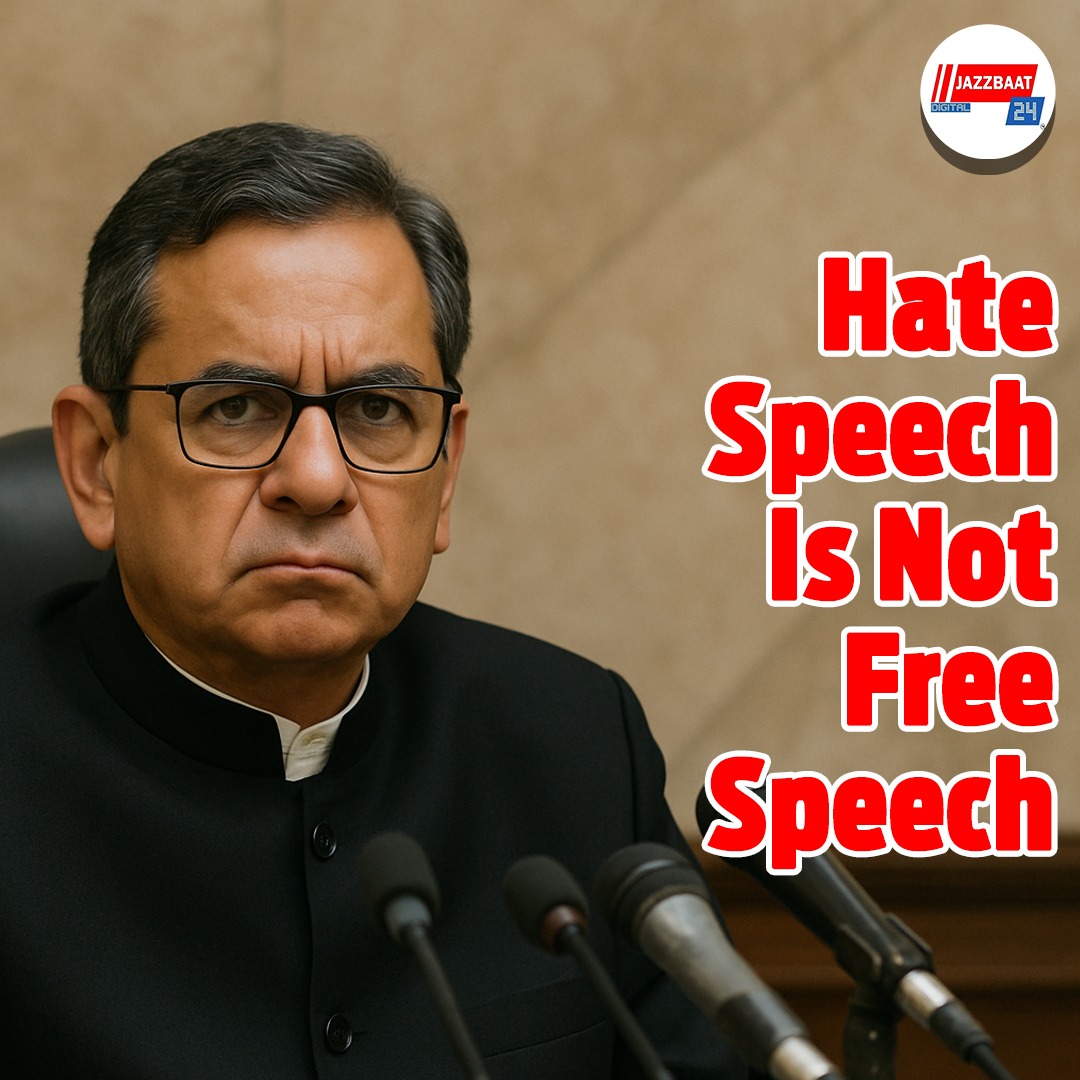
New Delhi, June 24, 2025:
In a landmark ruling in a case involving divisive public statements, the Supreme Court affirmed that hate speech is not shielded by the right to free speech. Chief Justice Sanjiv Khanna led the Bench in clarifying that speech that disparages people or communities is not protected by the constitution.
Addressing a public interest lawsuit brought by the Hindu Sena Samiti, the court denied requests for new rules governing political leaders' hate speech. It stated that resentful petitioners must "raise the same in accordance with law" and pointed out that "there is a difference between hate speech and wrong assertions."
The Supreme Court emphasized that it will censor speech that disparages people or groups. It announced its intention to formalize guidelines in this area by sending notices to a variety of public figures, including comedians Vipul Goyal and Samay Raina. "Hate speech, any speech which is intended to denigrate another," Justice Kant noted in its remarks. If such freedom exists, we will restrict it.
The Court's opinion that freedom of expression is not unqualified is reaffirmed by this ruling. Rather, it is limited by Article 19(2) of the Indian Constitution, which allows for reasonable limitations in the service of morality, public order, and national unity.
The Bench's decision is consistent with its earlier position in the historic case of Shreya Singhal v. Union of India, which invalidated the infamous Section 66A of the Information Technology Act. There, the court affirmed that the only speech that is unprotected by the constitution is that which incites impending criminal activity. Numerous high courts have come to similar rulings.
Notably, influencer Sharmistha Panoli was recently denied temporary bail by the Calcutta High Court, which ruled that "we have freedom of speech, but that does not mean you hurt sentiments of others". In a similar vein, the Delhi Metropolitan Magistrate declared in 2017 that "hate speeches... cannot be permitted to be donned in the attire of freedom of speech."
The Supreme Court's remarks, according to legal experts, might be a watershed. The Supreme Court seems ready to create a more distinct legal framework that distinguishes between hate speech and free speech, according to advocate Raghav Sharma. Justice Kant's remark, "We know how to curtail it," indicates that the court is willing to impose limitations on hate speech.
Concern over political and communal rhetoric in India has increased in the wake of this ruling. While some commentators warn that defining hate speech will need to be precise to avoid undue restriction of dissent, civil society organizations have hailed the decision as a step towards preserving social harmony.
It is anticipated that the Supreme Court will hold extensive hearings prior to establishing comprehensive guidelines regarding hate speech. In doing so, it must delicately strike a balance between two fundamental democratic principles: the obligation to safeguard vulnerable communities and the right to free speech.